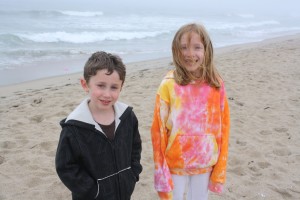We normally think about our children’s friends as other children whom they play and have fun with, like Casey Rose and the Joybug. But, friends play a more important role in your child’s emotional, social and academic development. They can promote positive and happy emotions.
Friends help your child do better in school. Research conducted through UNC-Chapel Hill showed that, even for students in the first grade, interactions with peers and academic achievement are linked to each other. Further research revealed that, as early as 3 – 5 years of age, peers have an influence on the literacy and language skills of children, and helps them learn freely and joyfully each day.
Friends help your child become a better person. Self-confidence, generosity, and social competence are among the traits that are positively related to having friends. On the flip side, research has shown that children with psychiatric problems have a limited circle of friends, and do not participate often in activities with friends.
The type of friendship changes as a child grows up. Pre-school, children become friends by spending a lot of play time together, sharing toys, and enjoying the same activities. Research shows that when the child enters school, the time spent with peers triples. Children at this age tend to make friends with others of similar gender, age, race, beliefs and attitudes.
A “best friend” is somewhat different for a child as time passes. Ask a pre-schooler who his best friends are and the list gets longer until he reaches 11 years old. Then he becomes more choosey. In one oft-cited study, children in the first grade mentioned having common activities as their reason for considering someone a best friend. By the time they reach the eighth grade, the most important criteria for a best friend became the person’s character. Other criteria were: common activities, loyalty, commitment and acceptance. Interestingly enough, none of the children in the study mentioned physical attractiveness as a reason for choosing a best friend. Casey Rose is outgoing and curious, she’s eager to explore the unique universe around her with her best friend, the Joybug.